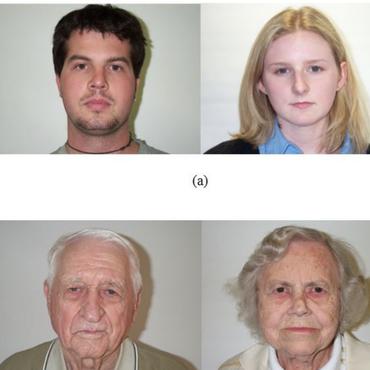Search Results for author: Samira Shabanian
Found 12 papers, 6 papers with code
Fairness-Aware Structured Pruning in Transformers
1 code implementation • 24 Dec 2023 • Abdelrahman Zayed, Goncalo Mordido, Samira Shabanian, Ioana Baldini, Sarath Chandar
The increasing size of large language models (LLMs) has introduced challenges in their training and inference.
Successor Features for Efficient Multisubject Controlled Text Generation
no code implementations • 3 Nov 2023 • Meng Cao, Mehdi Fatemi, Jackie Chi Kit Cheung, Samira Shabanian
While large language models (LLMs) have achieved impressive performance in generating fluent and realistic text, controlling the generated text so that it exhibits properties such as safety, factuality, and non-toxicity remains challenging.
Should We Attend More or Less? Modulating Attention for Fairness
no code implementations • 22 May 2023 • Abdelrahman Zayed, Goncalo Mordido, Samira Shabanian, Sarath Chandar
In this work, we investigate the role of attention, a widely-used technique in current state-of-the-art NLP models, in the propagation of social biases.
Systematic Rectification of Language Models via Dead-end Analysis
1 code implementation • 27 Feb 2023 • Meng Cao, Mehdi Fatemi, Jackie Chi Kit Cheung, Samira Shabanian
Other methods rely on rule-based or prompt-based token elimination, which are limited as they dismiss future tokens and the overall meaning of the complete discourse.
Deep Learning on a Healthy Data Diet: Finding Important Examples for Fairness
1 code implementation • 20 Nov 2022 • Abdelrahman Zayed, Prasanna Parthasarathi, Goncalo Mordido, Hamid Palangi, Samira Shabanian, Sarath Chandar
The fairness achieved by our method surpasses that of data augmentation on three text classification datasets, using no more than half of the examples in the augmented dataset.
Learning to Limit Data Collection via Scaling Laws: A Computational Interpretation for the Legal Principle of Data Minimization
no code implementations • 16 Jul 2021 • Divya Shanmugam, Samira Shabanian, Fernando Diaz, Michèle Finck, Asia Biega
FIDO learns to limit data collection based on an interpretation of data minimization tied to system performance.
Benchmarking Bias Mitigation Algorithms in Representation Learning through Fairness Metrics
1 code implementation • 8 Jun 2021 • Charan Reddy, Soroush Mehri, Deepak Sharma, Samira Shabanian, Sina Honari
With the recent expanding attention of machine learning researchers and practitioners to fairness, there is a void of a common framework to analyze and compare the capabilities of proposed models in deep representation learning.
Convergence Properties of Deep Neural Networks on Separable Data
no code implementations • 27 Sep 2018 • Remi Tachet des Combes, Mohammad Pezeshki, Samira Shabanian, Aaron Courville, Yoshua Bengio
While a lot of progress has been made in recent years, the dynamics of learning in deep nonlinear neural networks remain to this day largely misunderstood.
On the Learning Dynamics of Deep Neural Networks
no code implementations • 18 Sep 2018 • Remi Tachet, Mohammad Pezeshki, Samira Shabanian, Aaron Courville, Yoshua Bengio
While a lot of progress has been made in recent years, the dynamics of learning in deep nonlinear neural networks remain to this day largely misunderstood.
Variational Bi-LSTMs
no code implementations • ICLR 2018 • Samira Shabanian, Devansh Arpit, Adam Trischler, Yoshua Bengio
Bidirectional LSTMs (Bi-LSTMs) on the other hand model sequences along both forward and backward directions and are generally known to perform better at such tasks because they capture a richer representation of the data.
Theano: A Python framework for fast computation of mathematical expressions
1 code implementation • 9 May 2016 • The Theano Development Team, Rami Al-Rfou, Guillaume Alain, Amjad Almahairi, Christof Angermueller, Dzmitry Bahdanau, Nicolas Ballas, Frédéric Bastien, Justin Bayer, Anatoly Belikov, Alexander Belopolsky, Yoshua Bengio, Arnaud Bergeron, James Bergstra, Valentin Bisson, Josh Bleecher Snyder, Nicolas Bouchard, Nicolas Boulanger-Lewandowski, Xavier Bouthillier, Alexandre de Brébisson, Olivier Breuleux, Pierre-Luc Carrier, Kyunghyun Cho, Jan Chorowski, Paul Christiano, Tim Cooijmans, Marc-Alexandre Côté, Myriam Côté, Aaron Courville, Yann N. Dauphin, Olivier Delalleau, Julien Demouth, Guillaume Desjardins, Sander Dieleman, Laurent Dinh, Mélanie Ducoffe, Vincent Dumoulin, Samira Ebrahimi Kahou, Dumitru Erhan, Ziye Fan, Orhan Firat, Mathieu Germain, Xavier Glorot, Ian Goodfellow, Matt Graham, Caglar Gulcehre, Philippe Hamel, Iban Harlouchet, Jean-Philippe Heng, Balázs Hidasi, Sina Honari, Arjun Jain, Sébastien Jean, Kai Jia, Mikhail Korobov, Vivek Kulkarni, Alex Lamb, Pascal Lamblin, Eric Larsen, César Laurent, Sean Lee, Simon Lefrancois, Simon Lemieux, Nicholas Léonard, Zhouhan Lin, Jesse A. Livezey, Cory Lorenz, Jeremiah Lowin, Qianli Ma, Pierre-Antoine Manzagol, Olivier Mastropietro, Robert T. McGibbon, Roland Memisevic, Bart van Merriënboer, Vincent Michalski, Mehdi Mirza, Alberto Orlandi, Christopher Pal, Razvan Pascanu, Mohammad Pezeshki, Colin Raffel, Daniel Renshaw, Matthew Rocklin, Adriana Romero, Markus Roth, Peter Sadowski, John Salvatier, François Savard, Jan Schlüter, John Schulman, Gabriel Schwartz, Iulian Vlad Serban, Dmitriy Serdyuk, Samira Shabanian, Étienne Simon, Sigurd Spieckermann, S. Ramana Subramanyam, Jakub Sygnowski, Jérémie Tanguay, Gijs van Tulder, Joseph Turian, Sebastian Urban, Pascal Vincent, Francesco Visin, Harm de Vries, David Warde-Farley, Dustin J. Webb, Matthew Willson, Kelvin Xu, Lijun Xue, Li Yao, Saizheng Zhang, Ying Zhang
Since its introduction, it has been one of the most used CPU and GPU mathematical compilers - especially in the machine learning community - and has shown steady performance improvements.
Bidirectional Helmholtz Machines
1 code implementation • 12 Jun 2015 • Jorg Bornschein, Samira Shabanian, Asja Fischer, Yoshua Bengio
We present a lower-bound for the likelihood of this model and we show that optimizing this bound regularizes the model so that the Bhattacharyya distance between the bottom-up and top-down approximate distributions is minimized.





